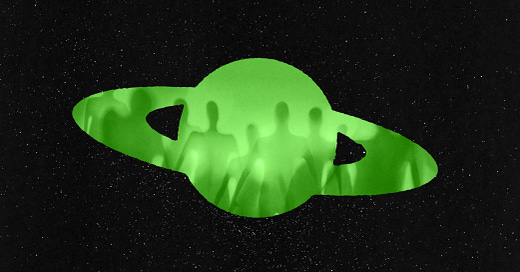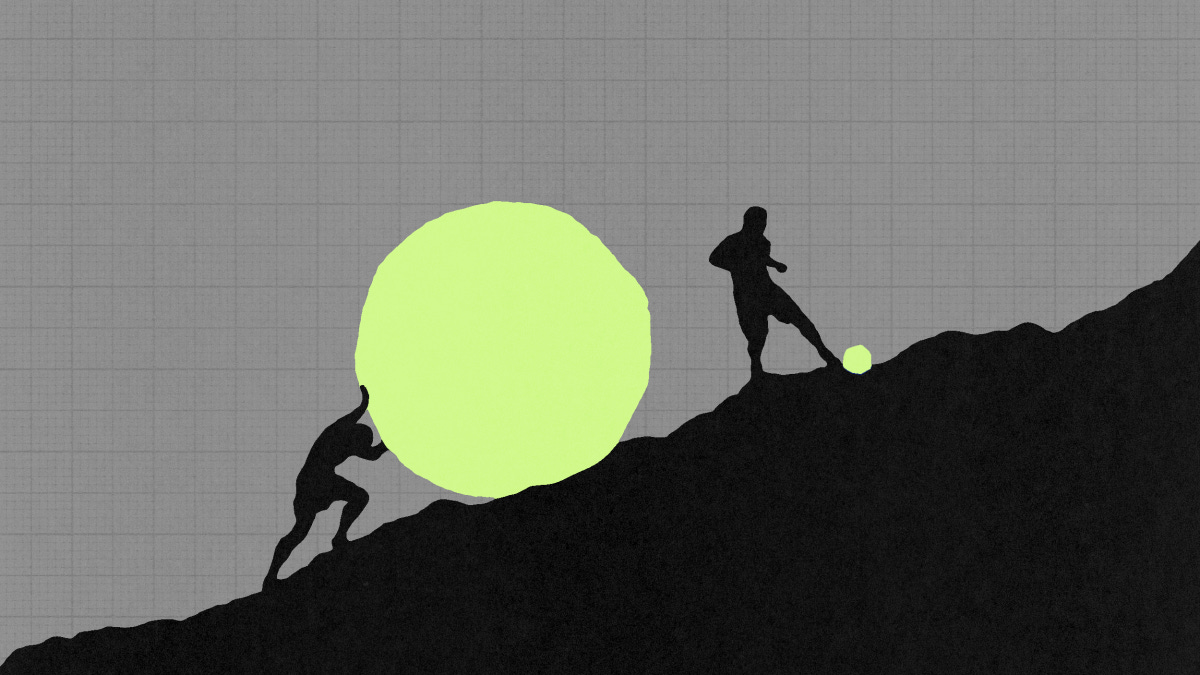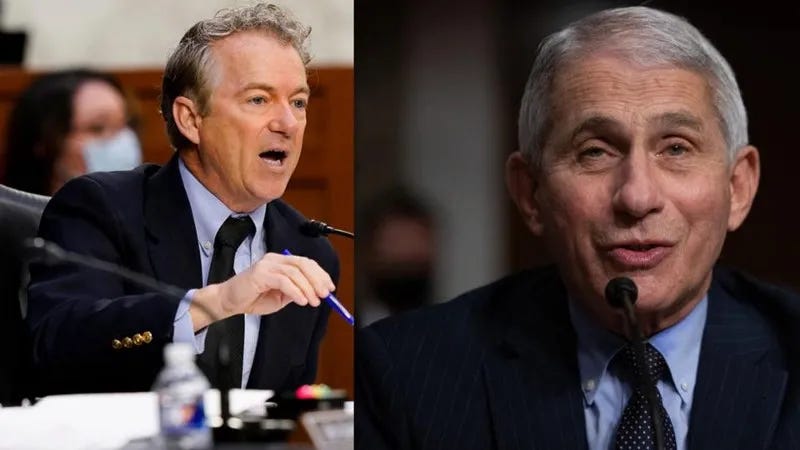Smarter Faster: 60 quadrillion aliens
Why scientists once assumed every planet was inhabited.
with Stephen Johnson • Thu 1 May, 2025
Hey Big Thinkers,
Two weeks ago, headlines popped up in my feed saying that researchers might have detected chemical signs of life on a distant planet: K2-18b. I ignored them all. One reason is that it would probably take scientists time to confirm a claim like that. I also knew that Big Think’s Ethan Siegel, an astrophysicist, would cover the story and let me know whether this was the real deal or 124 light-years of hype.
Ethan’s take? The evidence is flimsy at best. Case closed for now, I figured. Then one line in his article caught my eye: “The real science is far more interesting than the specious claims you’ve likely read elsewhere.”
I’d agree that sober science is always more productive than hype. But in terms of what most interests the general public? My money, for better or worse, goes on “maybe it’s aliens!” over marginal developments in things like spectral analysis.
People want to know whether we’re alone in the Universe. What might surprise you is that just a few centuries ago, this wasn’t much of a question — it was a certainty, one so wild and grandiose that it blows today’s specious claims about alien life out of the Solar System. This week, historian Thomas Moynihan tells that story.
Read on,
Stephen
THE BIG CENSUS
Aliens, everywhere: Why scientists once assumed every planet was inhabited
According to the 19th-century theologian and astronomer Thomas Dick, the total population of the visible Universe was 60,573,000,000,000,000,000,000 (give or take). Dick wasn’t the only person to propose a “cosmic census” over the centuries. By then, scientists and thinkers had long assumed that not only did aliens exist but that intelligent beings inhabited nearly everything in the visible Universe: planets, stars, and even “empty” space. As Thomas Moynihan explains, it took some early-20th-century discoveries to dispel this crowded view of the cosmos.
Fast Stats
5 — The classic science fiction novels written by scientists, as featured by Big Think Books.
6 — The books that changed the life of King Willonius, the comedian and musician behind the viral hit “BBL Drizzy.”
1938 — The year when more than 1,000 American scientists signed a pro-democracy manifesto amid rising fascism.
21 centimeters — The “magic length” of our Universe, as Ethan Siegel explains.
THE BIG HURRY
How losing all my free time forced me to rethink productivity
“The day I accomplished more in 6 hours than I had in entire weeks of work was the day I realized everything I knew about productivity was wrong,” begins this insight-packed essay from behavioral scientist Danny Kenny. After an insanely busy schedule left him with no free time, Kenny found that the scarcity had created clarity — about his priorities, values, and the conditions under which he did his best work. It helped him develop the concept of Value-Aligned Productivity. It’s not about working more but rather knowing why you’re working in the first place.
MINI PHILOSOPHY
4 reasons to take rest more seriously
By Jonny Thomson
Stephen is my editor. We’ve worked together for many years now. I make him laugh and give meaning to his life. But, having edited literally hundreds of my articles, Steve takes me for granted. He copyedits, sure. He fact-checks, yes. The question I often ask my therapist is, “But does Steve really read my stuff? Do the ideas land, or are they lost among the punctuation and grammar?”
Well, this week, I found the answer. On Sunday morning, I saw a post on Instagram of Steve out with some friends, having the time of his life: wide smile, wide stance, and beery eyes. I double-tapped to send my little like. Then, on Monday morning, I open my DMs:
“Your article guilt-tripped me into leaving the house this weekend.”
He does read my stuff! I’m validated! If you want to know what Steve meant — and if you, too, would be kind enough to validate my shrunken ego — read this week’s Mini Philosophy article.
Subscribe to Mini Philosophy on Substack for even more from Jonny Thomson.
Popular
The missing tech case for how we create an era of abundance
The future of the “like” button: Thumbs up or thumbs down?
How “Gibson’s law” makes it hard to trust experts
Why Hannah Arendt left philosophy behind to face the world
THE BIG INDIFFERENCE
The importance of caring about the truth
Lies are bad. But according to philosopher Harry Frankfurt, bullshit might be worse. In this recent piece, Ethan Siegel takes that idea seriously, arguing that what’s rotting our civic discourse isn’t just dishonesty — it’s indifference about the basic concept of truth. From believing vaccines cause autism to denying climate change, bullshit thrives when the truth becomes optional. “Everything depends on it,” writes Siegel.
Stephen Johnson is the managing editor at Big Think.
Get more from Big Think:
Mini Philosophy | Starts with a Bang | Big Think Books | Big Think Business















We struggle to coexist with each other. Why are we so sure that discovering aliens will make us feel any better?
Saving this to skim with my 11 yr old grandson. Good to remind him that everything we think is not automatically true. Truth evolves